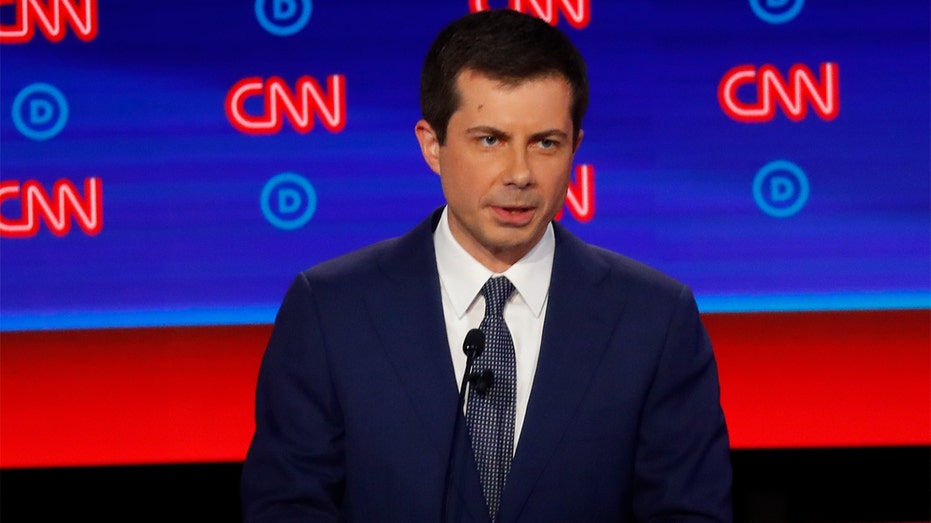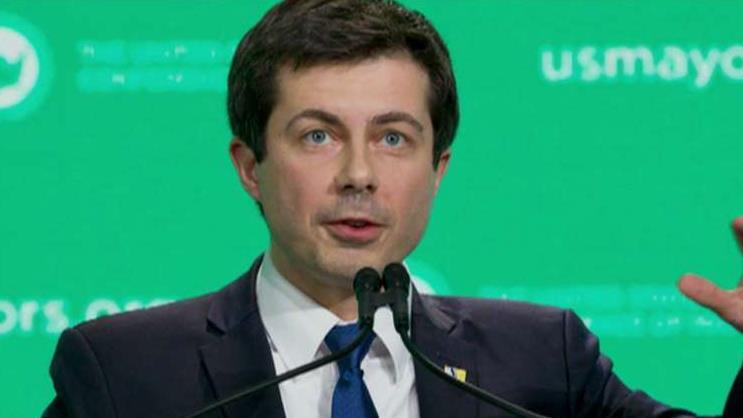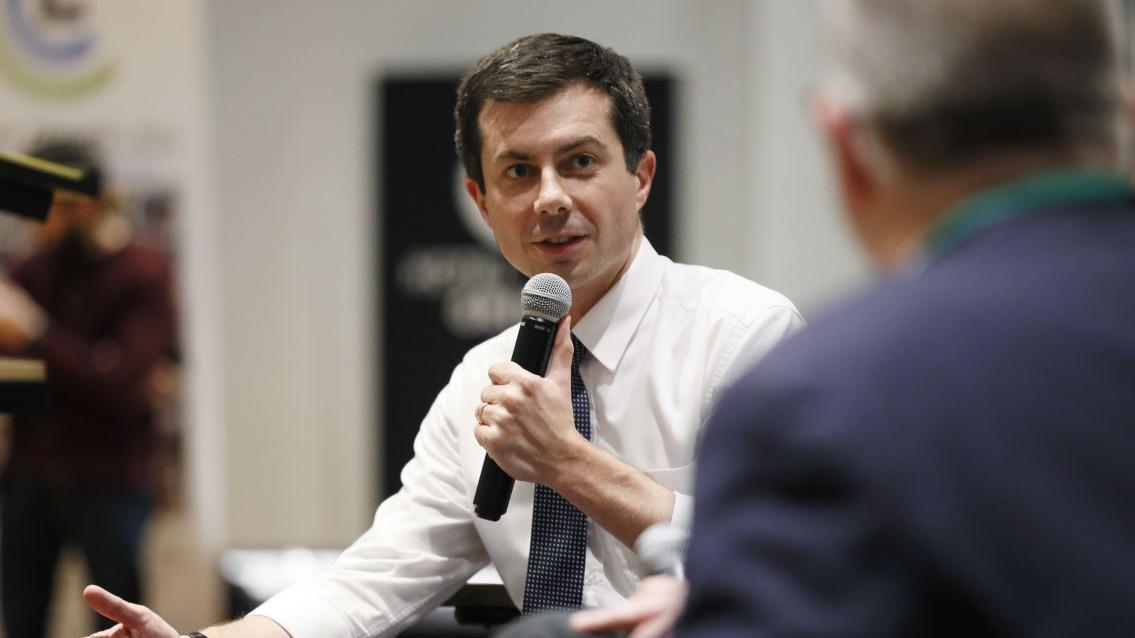Buttigieg health care plan could hit consumers at year’s end, critics say
Democratic presidential candidate Pete Buttigieg has billed his health care plan as a moderate alternative Medicare-for-all, but according to some critics, it could leave consumers hurting at the end of the year.
Under the South Bend, Indiana mayor’s plan — which he’s dubbed "Medicare for all who want it” — Americans would have the option to either opt in to public health insurance or keep their private health care plans if they like them. But it would automatically enroll Americans who lack insurance in the public option, potentially burdening them with a hefty bill for “retroactive” coverage.
"We make sure that everybody can afford [public health insurance], but we don't require you to take it,” he told NPR in November. “And partly I think that's just the right policy, because I think people should be able to choose. But it's also really important that that's a policy that commands the support of most Americans.”

South Bend Mayor Pete Buttigieg participates in the first of two Democratic presidential primary debates hosted by CNN Tuesday, July 30, 2019, at the Fox Theatre in Detroit. (AP Photo/Paul Sancya)
Buttigieg’s campaign has not specified how much Americans might owe if they don’t purchase health insurance. However, the plan would cap premium payments at 8.5 percent of income.
WARREN'S WEALTH TAX WOULD STUNT US GROWTH, NOT JUST IRRITATE THE RICH
Critics have drawn comparisons to one of the most unpopular edicts of former President Obama’s Affordable Care Act: the individual mandate, which required Americans to either buy insurance or pay a $695 annual fine or a charge of 2.5 percent of their income, until Republicans stripped it from the law in the 2017 Tax Cuts and Jobs Act. A federal appeals court ruled it unconstitutional last week, though it punted the decision about whether the entire law is unconstitutional to a lower court. (Unlike the ACA, Buttigieg's plan would not leave Americans the choice to not have health coverage).
Some estimated that Buttigieg’s plan could leave people with year-end bills of more than $7,000, according to The Washington Post, which first reported the news. However, Buttigieg's plan lays out other affordability measures, including expanding who's eligible to receive government subsidies to buy health insurance, offering subsidies to low- and middle-income Americans for premium payments and eliminating surprise billing.
GET FOX BUSINESS ON THE GO BY CLICKING HERE
“The ACA’s mandate was never an actual mandate — it was simply a penalty if you didn’t have coverage. This is really a mandate to have coverage,” Larry Levitt, a health-care expert at the Kaiser Family Foundation, which studies health-care issues, told the Post.
A campaign spokesperson for Buttigieg told the Post that the candidate had not misled voters, stressing that the choice is between where to get insurance -- not between having it or not.
Buttigieg has tried to draw clear distinctions between his $1.5 trillion plan, which promises to expand coverage to low-income Americans, and the sprawling, expensive Medicare-for-all proposals supported by 2020 competitors Sens. Elizabeth Warren and Bernie Sanders. Eliminating private insurance in the country and shifting to a single-payer system would cost somewhere between $20 trillion and $30 trillion over the course of a decade, according to estimates.





















